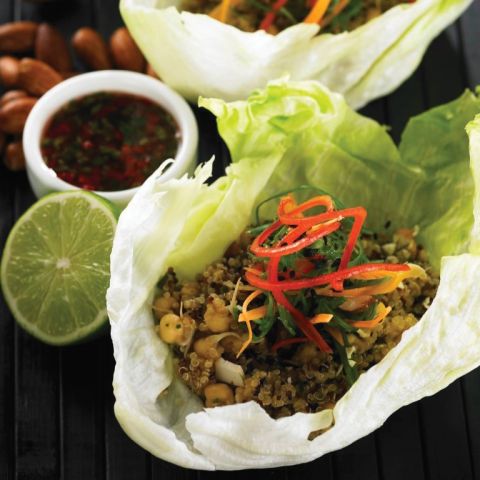Why your digestion can get sluggish at this time of year
Dr Libby (PhD) offers a gentle guide to why digestion falters during the festive season and the simple shifts that help restore comfort.
Sponsored Story

Key points
- Festive-season habits commonly disrupt digestion.
- Alcohol slows motility, irritates the gut and affects sleep.
- Rich, heavy foods are harder to digest and can cause bloating or heaviness.
- Eating late, fast, or while stressed impairs digestion and chewing.
- Less movement slows bowel motility; short walks help.
- Dehydration makes stools harder and slows elimination.
- Small shifts ease symptoms.
If you’ve noticed your digestion feeling a little “off” around the silly season – slower, heavier, or more temperamental than usual – you’re certainly not alone.
Around this time of year, so many people experience changes in their gut function that have nothing to do with age and everything to do with how the season naturally nudges us toward different habits. End-of-year celebrations, visiting family, long lunches, hotter weather, potential dehydration, and disrupted routines all play a part.
The good news? Once you understand what’s behind the sluggishness, you can make gentle shifts that help your digestion feel more comfortable again.
Let’s explore a few of the most common culprits.
A little more alcohol than usual
Many people enjoy a glass of bubbles or wine a little more frequently in the lead-up to Christmas and New Year. Yet alcohol is one of the biggest contributors to sluggish digestion. It relaxes the muscles of the oesophageal sphincter – the “gatekeeper” between your throat and stomach – which can trigger heartburn or reflux.
Alcohol also irritates the stomach lining, slows intestinal motility, and alters the balance of gut bacteria in the large intestine.
For some people, even one or two extra drinks each week can make their gut feel unsettled. And if you’re drinking in the evening, alcohol can also disrupt sleep which further affects digestive function the following day.
This doesn’t mean you need to avoid alcohol completely. Sip slowly, have at least one alcohol-free drink between each alcoholic one, and give your body a few genuinely alcohol-free nights each week.
Richer, heavier, and more processed foods
End-of-year gatherings often come with beautiful platters, fried nibbles, pastries, puddings, and all the holiday favourites we genuinely enjoy.
The challenge is that these foods can simply be harder on the digestive system. Heavier meals require robust stomach acid and efficient digestive enzyme production. If you don’t produce quite as much of these as you used to – something that naturally becomes more common with age – food can take longer to move through your digestive system than it once did. That can feel like bloating, fullness, belching, or just a general sense of heaviness after eating.
But this isn’t about deprivation. It’s about supporting your digestive system so it can keep supporting you. One of the simplest ways to do that is to make sure the meals you have around those celebratory occasions are filled with nourishment – colourful vegetables, good quality protein – whole foods – and plenty of water away from those meals. This can all help your digestive system reset so the richer meals don’t feel quite so taxing.
Eating later, faster – or on the run
Our routines tend to unravel a little as the season gets busier. We might eat later in the evening than usual, which means we’re going to bed while still digesting. Or we might rush meals because we’re shopping, hosting or trying to get everything done before the year ends. Eating quickly – or eating in a stressed, distracted state – can dramatically slow digestion. When we rush, we rarely chew well, which means we send larger pieces of food into the stomach and ask it to do the heavy lifting our teeth were designed for. And when we eat while feeling pressured or overwhelmed, the body tends to divert support away from digestion because it thinks we’re “under threat”. It’s a beautifully intelligent system, but it means that stress and speed can make even simple meals feel harder to process.One of the kindest things you can do for your digestive system is simply to slow down. Put your knife and fork down between bites, slow your breathing, chew thoroughly and let your body register the meal. These small moments of presence make an extraordinary difference.
A drop in movement
With fuller calendars, many people naturally move less at this time of year. Yet gentle movement is one of the most powerful tools for boosting sluggish digestion. Walking, in particular, stimulates the rhythmic contractions of the intestines that keep everything moving. Even a 10–15 minute stroll after meals can help ease bloating, support regularity and assist the body process richer foods with greater ease.
Not quite enough water
Warm weather, salty foods, alcohol and busy days can all leave us slightly dehydrated. Without enough fluid, the colon draws more water out of the stool, making it harder and slower to pass. That’s why constipation often shows up in December and January. Keep a large glass of water nearby at all times and sip consistently throughout the day. If you enjoy herbal teas, peppermint, ginger or chamomile can be especially soothing.

Subscribe to Health Matters today
As we age, our health really does matter – and it’s important to stay up to date with the latest advice and information on health and well-being.
Subscribe to our informative digital newsletter Health Matters, where you’ll receive quality articles, healthy recipes and the latest health information relevant to older Australians. Each edition features contributions from Dr Libby (PhD) – Internationally acclaimed nutritional biochemist, best-selling author, and international speaker – who shares her insights on nutrition, energy, and healthy living. From practical tips to inspiring ideas, Health Matters covers everything you need to know to create and maintain a healthy lifestyle in your later years.
Dr Libby has a Bachelor of Health Science (Nutrition and Dietetics) (Hons), a PhD in Biochemistry, and 25 years of clinical experience.
Disclaimer: This article is for information purposes only and should not be considered medical advice. Consult a healthcare professional about any health concerns or before making any changes to your medication, diet, or exercise routine.




